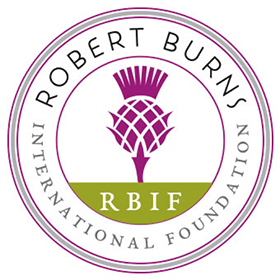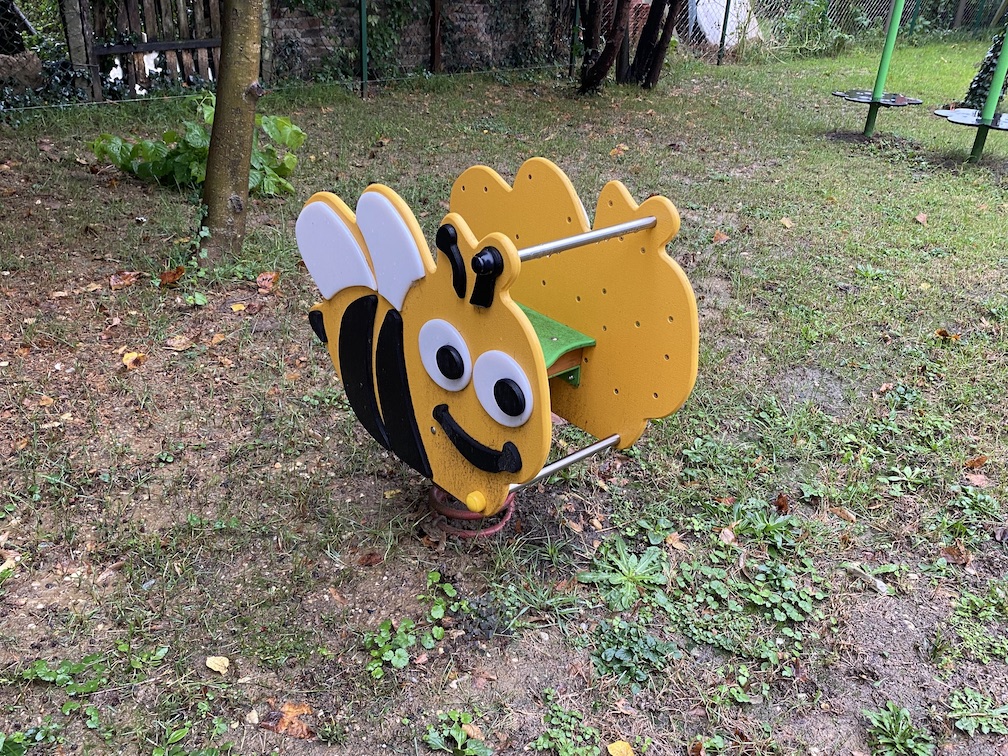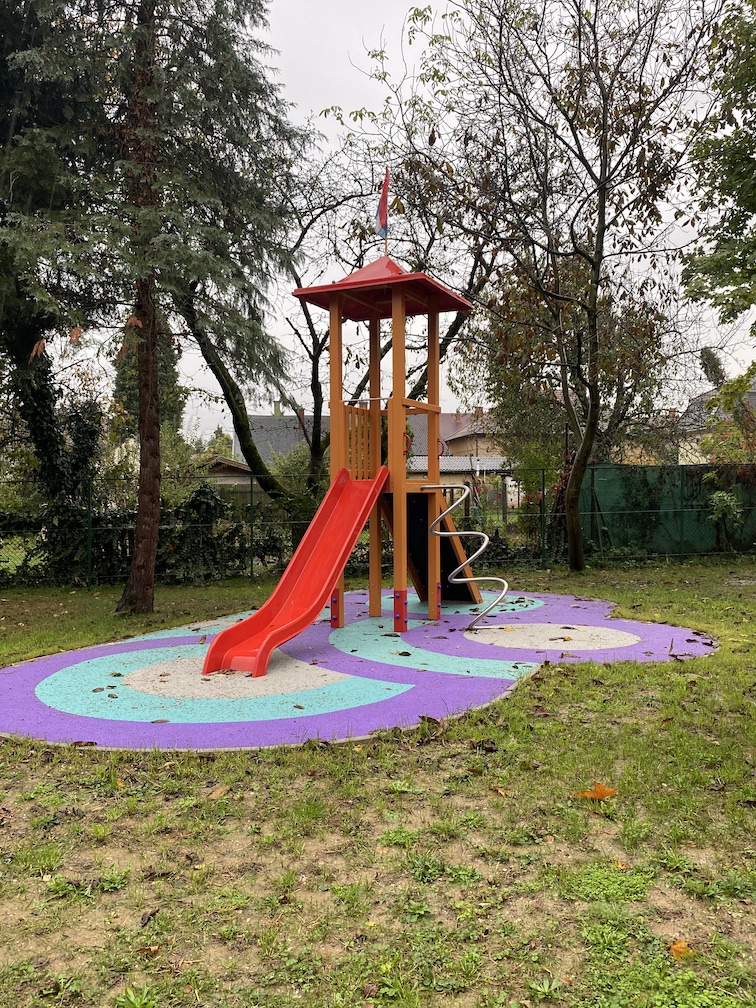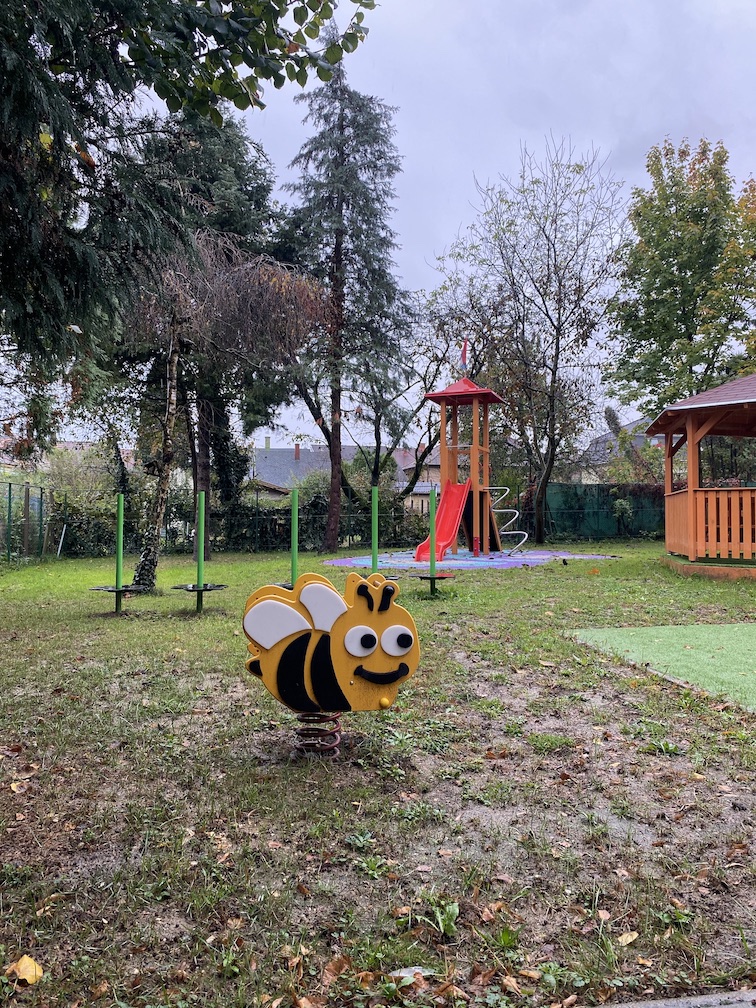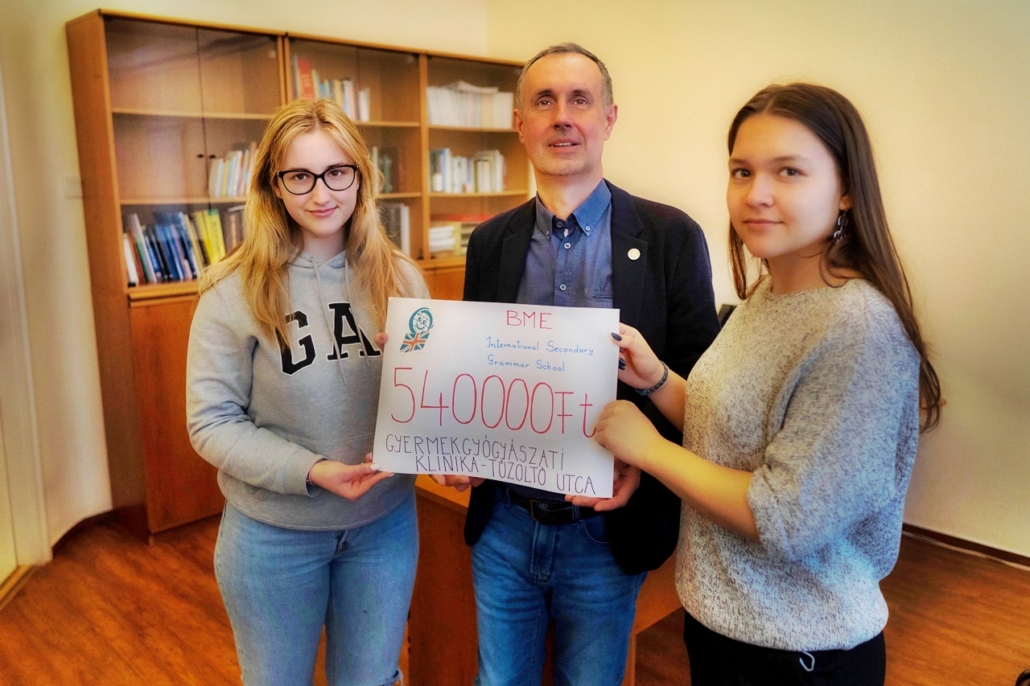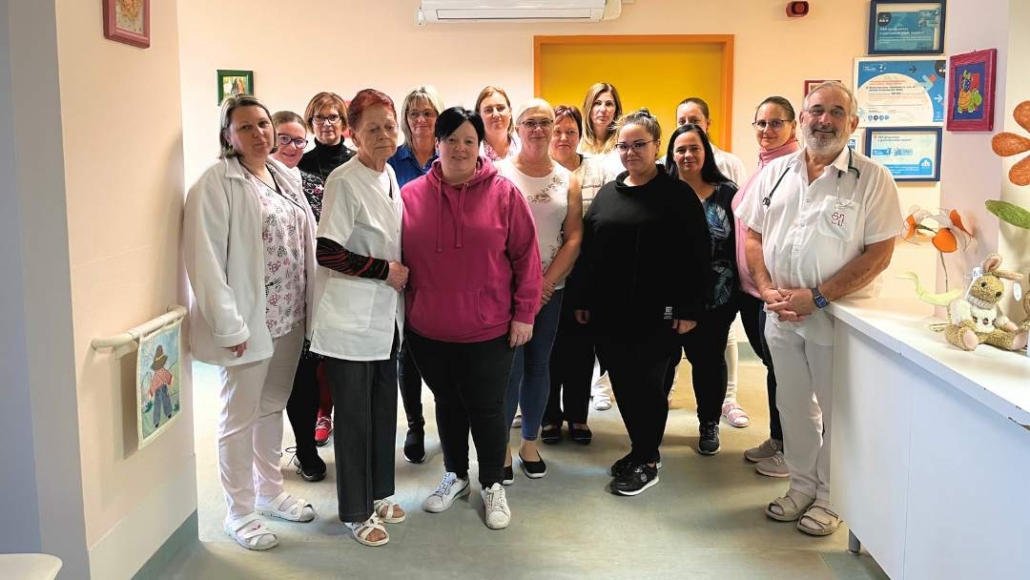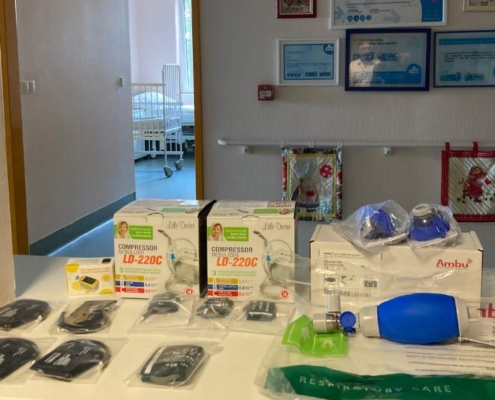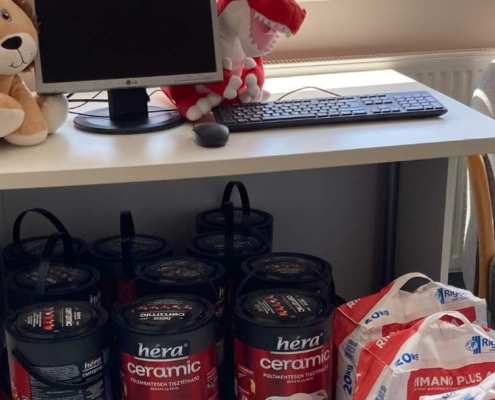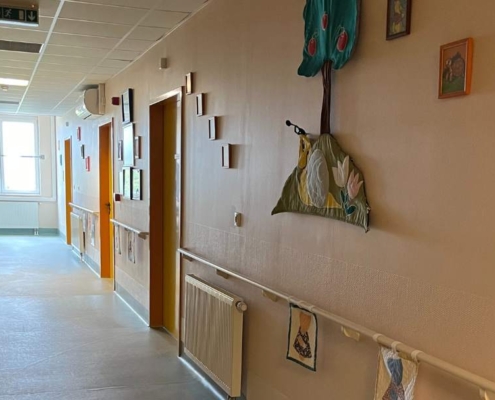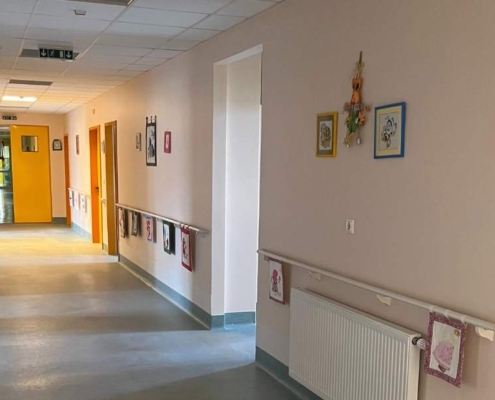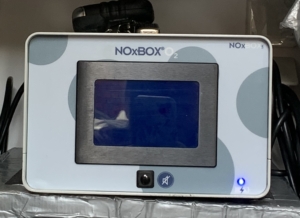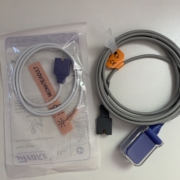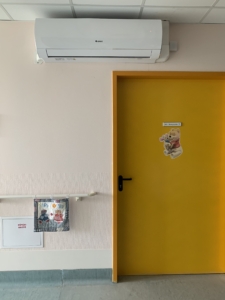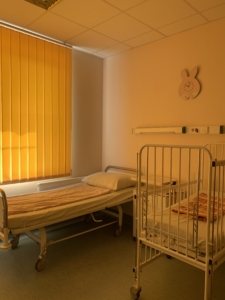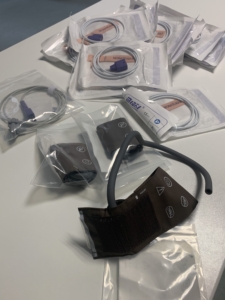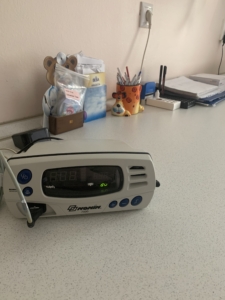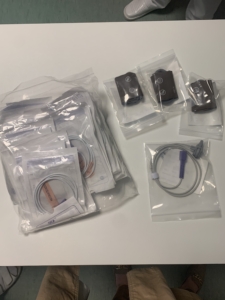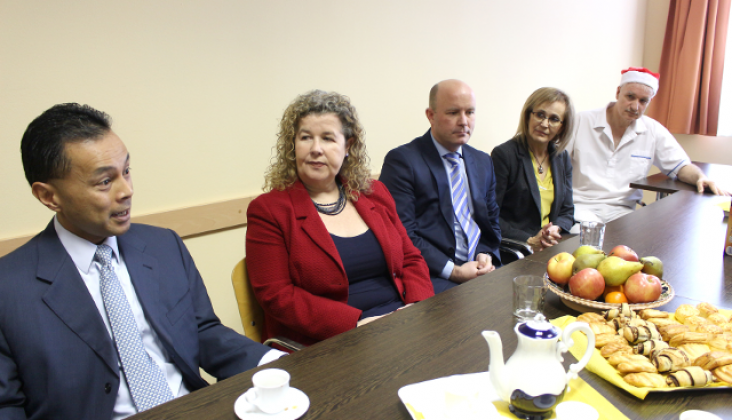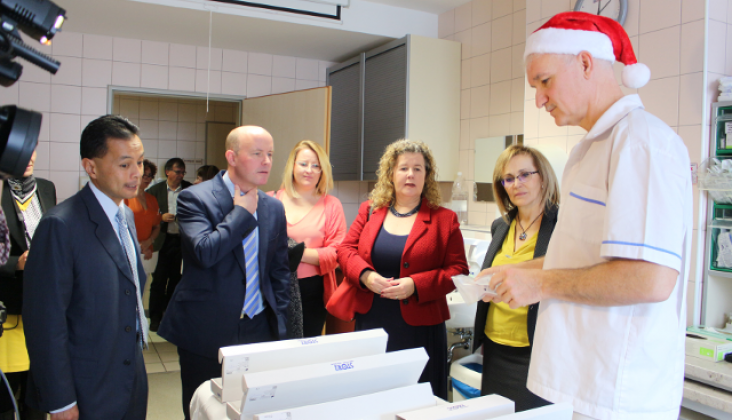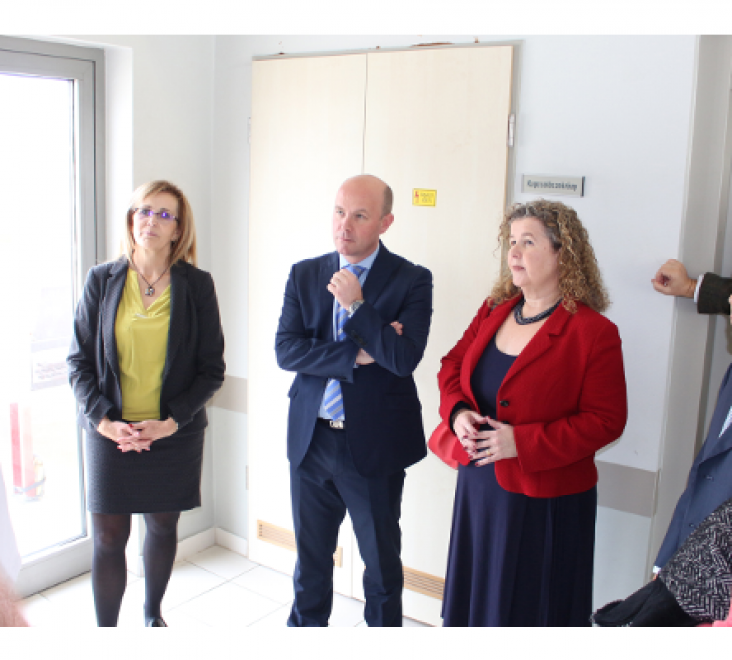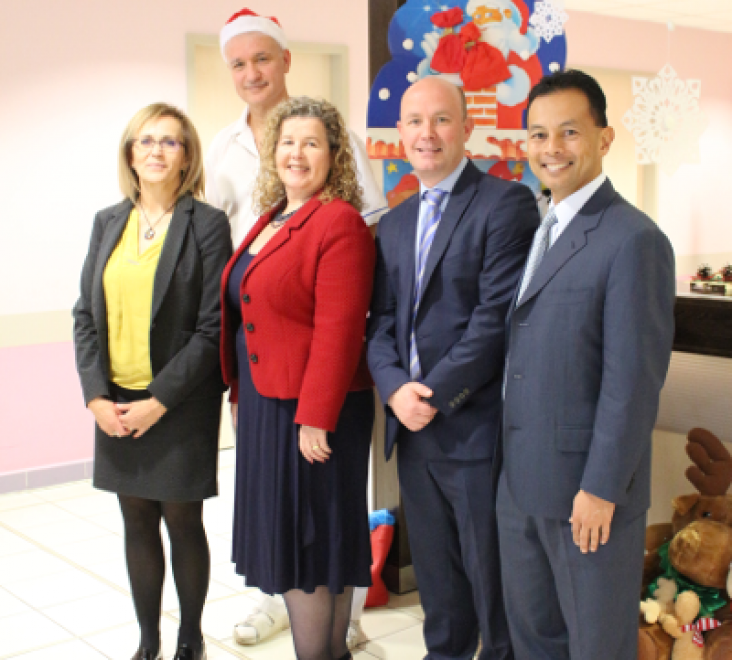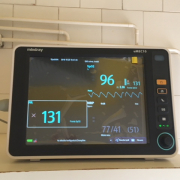For many years now as part of our SME Sponsorship Scheme, and in collaboration with FirstMed Centers, the Robert Burns International Foundation has supported the Infant and Paediatric Department at the Szent Rafael Hospital in Zalaegerszeg.
This hospital not only functions as a health-care institution for the 60,000 people who live in this town situated in the south-west of Hungary in Zala county. It is also the main hospital for the surrounding area, and accepts patients from throughout western Hungary, and even from across Hungary’s borders.
In 2023, after consulting with the hospital administration we were asked to help fund a completely new project, an outdoor therapy playground located on the hospital grounds. According to the team of specialists who run the outdoor therapy area:
We can complement the therapy of children coming to us for rehabilitation from all over the country by using outdoor games to enhance their motivation for hard training and to offer them a pleasant experience. The majority of our young patients come to us with neurological issues, and most of them have impaired motor, cognitive, speech, self-motivation functions.
Playing outdoors provides these children with a huge dose of intrinsic motivation. The slide, the dolphin, the bee and the lily are very popular toys. In addition to us being able to offer them therapy in the open air, this equipment can serve important therapeutic purposes for children for whom sitting, standing and walking do not come very easily.
We chose this equipment for children with neurological disorders because they improve balance, coordination and head-torso control, relieve adduction contracture in children with spastic muscles, as well as developing pelvic stability and upper limb movement.
The hospital staff are delighted to be able to achieve these objectives thanks to the support provided by the RBIF to complete the playground, and our thanks in turn goes to everyone who attended the 2023 Burns Supper to help us do so. And our special thanks to Dennis Diokno and his team at FirstMed for continuing to support us in the SME Sponsorship Scheme so we can facilitate big changes at the hospital in Zalaegerszeg every year.
